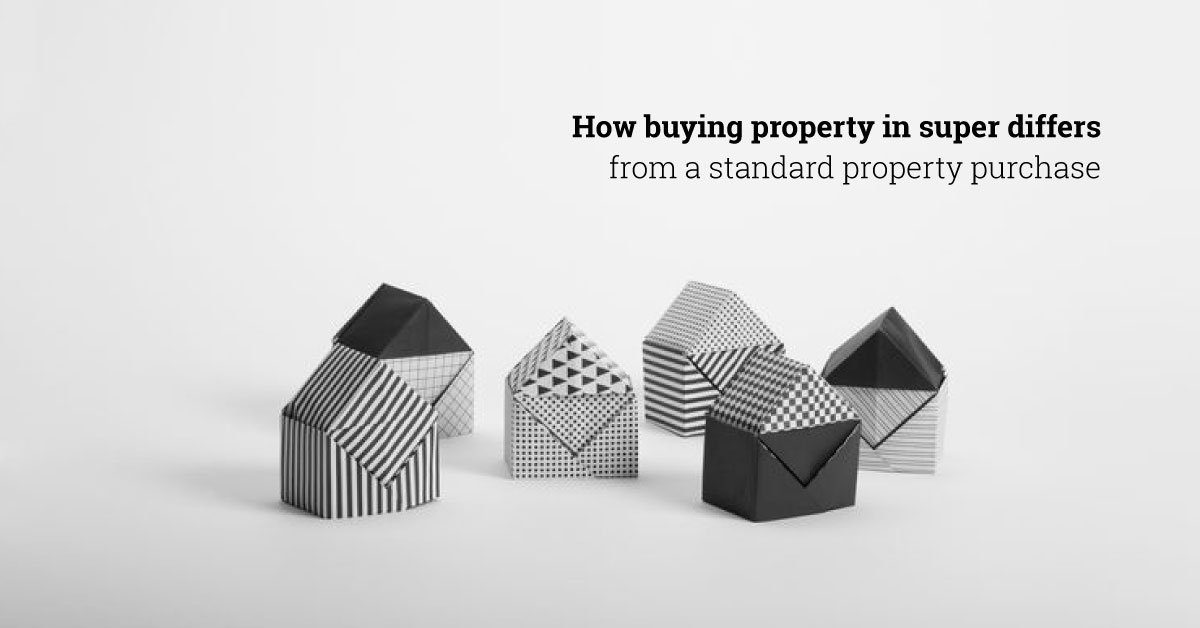 One of the biggest advantages of having a self managed super fund (SMSF) is the ability to directly invest in real estate. While the ability to borrow in super to purchase property has only been around in the last 10 years, self managed funds have always had the ability to purchase property in super.
One of the biggest advantages of having a self managed super fund (SMSF) is the ability to directly invest in real estate. While the ability to borrow in super to purchase property has only been around in the last 10 years, self managed funds have always had the ability to purchase property in super.
You can purchase both commercial and residential properties in super; you can also take advantage of government-sponsored property schemes such as the National Rental Affordability Scheme, and you can even invest in foreign real estate if you have addressed and accept the additional risks. The only stipulation is that the super fund cannot purchase a residential property that a member owns in their individual name.
NOTE: If you’ve been thinking about borrowing to purchase a property within your SMSF, you must act soon, as the recent outcome of Financial Services Inquiry has recommended it potentially be soon abolished.
The advantages
- Diversification. Property provides diversification from traditional share investments.
- Comfort. Ideal for those more comfortable investing in property rather than shares.
- Control. Unlike investing in a property trust, you get to choose the property that you believe is the best investment for you and the other members of the fund.
- Be your own Landlord. Are you a business owner? Your fund can own the commercial property from which you operate your business, and this can provide a great way of accelerating your superannuation. The rent that your business pays to the SMSF as the owner of the property is tax deductible and not treated as a super contribution.
- Tax savings on capital gains. The tax on any capital gains for an SMSF in accumulation phase is 15% if the property is sold within 12 months, and 10% if the property is sold after 12 months. The proceeds are capital gains tax free if the property is sold for SMSFs in the pension phase: a 0% tax rate is hard to beat!
- Tax savings on earnings. You’re only taxed 15% on earnings (that is, rent income) for an SMSF in accumulation phase, and 0% in pension phase.
The considerations
- If you invest in a residential property, you cannot live in the property, and neither can any family members.
- Liquidity can be reduced. The fund will still need to be able to meet expenses like tax liabilities, strata and council rates, and this might be an issue if tenants are hard to come by. The lack of liquidity can also present cash flow issues when needing to make a minimum pension payment while in pension phase.
- Unless you’re borrowing to purchase the property, you need a higher amount of capital in your super fund to make this a viable investment. Otherwise, you may not have diversified your investments sufficiently
- Property has a longer investment cycle – generally more suitable for those who are willing to be in the property market for at least 10 years.
- If you purchase the property cash you won’t be able to finance it later – the borrowing has to be done at the time of purchase
The ability to borrow in super is quite pwerful & it continues to generate more interest, as there are more banks offering appropriate loans and the costs are declining.
If you are considering borrowing within super, you should be aware of the following:
- Make sure that the property purchased fits the investment strategy of your fund
- Your SMSF needs a minimum balance to make the purchase possible & viable – an amount of $150-200,000 is recommended
- Negative gearing isn’t as advantageous in super as it is outside super. Since the tax rate is only 15% in accumulation phase, the value of the deduction is significantly lower in super when compared to individual marginal tax rates
- You cannot use borrowed funds to improve or develop the property, only to repair and maintain it
- You cannot borrow on the equity growth of the property over time
Like borrowing to purchase property in your own name, borrowing in super is a great way of getting into the property market earlier if you don’t have quite enough in super to be able to purchase a property outright.
Just remember to consider both the advantages and disadvantages of the investment before going into it.

